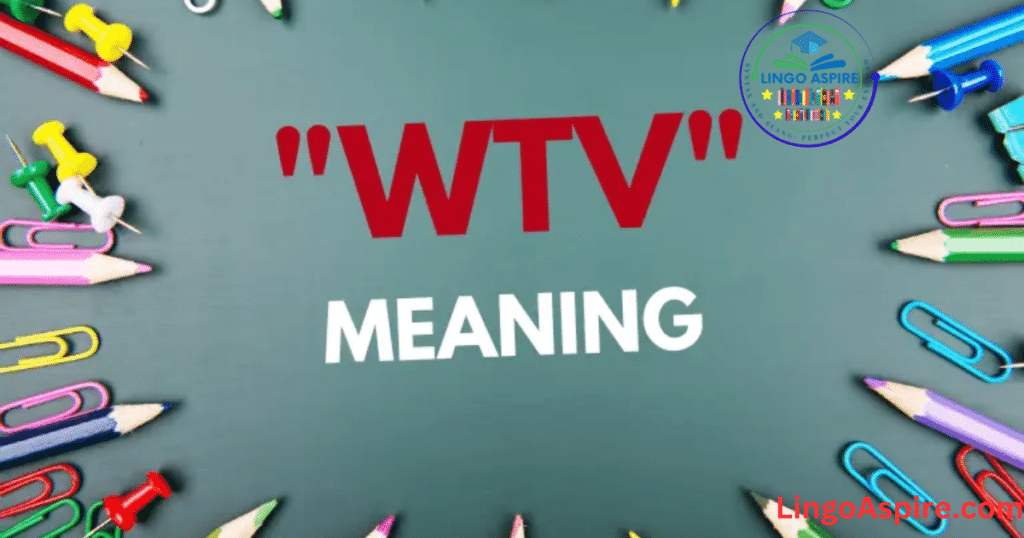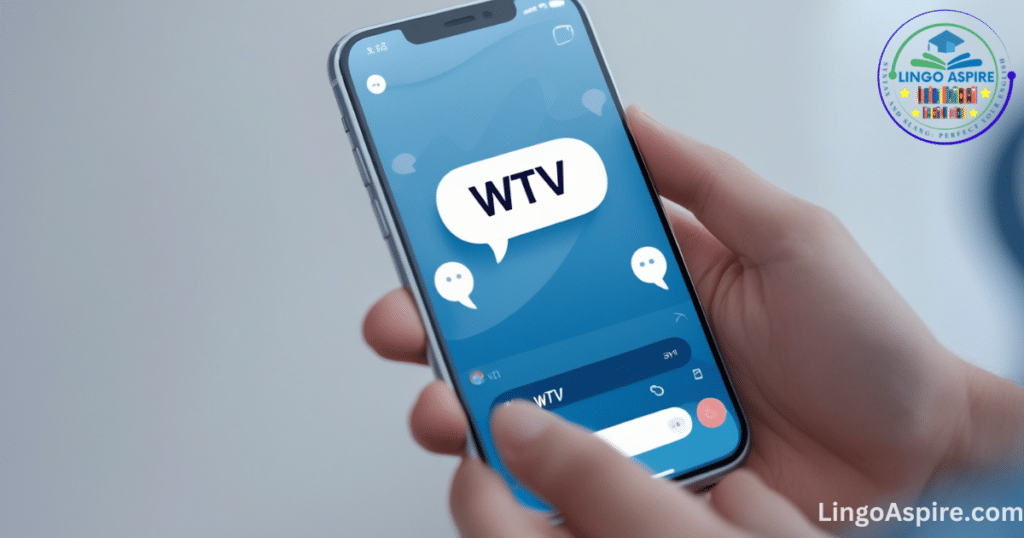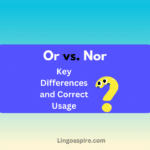Introduction
Texting slang changes fast, and new abbreviations appear almost daily. If you have ever seen someone type “WTV” in a message and wondered what it meant, you’re not alone. WTV meaning in text is simple yet versatile. It is an abbreviation for “whatever” and is commonly used to express indifference, agreement, or even sarcasm, depending on the context.
Understanding WTV slang meaning helps in decoding conversations, especially in digital spaces like Snapchat, Instagram, TikTok, and Twitter/X. Whether you’re texting a friend or replying to a social media comment, knowing how to use WTV abbreviation correctly can improve communication.
What Does WTV Mean in Texting?

The WTV definition is straightforward—it stands for “whatever.” People use it in text messages, chats, and social media to indicate that they do not care much about something. However, WTV meaning in chat can change based on the tone and situation. It can express boredom, disinterest, or even casual agreement.
For example, if someone asks, “What do you want to eat?” and you respond with “WTV,” it means you have no strong preference. However, if someone is arguing and you reply with “WTV,” it can come off as dismissive. WTV slang meaning is highly dependent on how and where it’s used.
How to Use WTV in Texting?
WTV is a versatile slang term that can be used in multiple ways depending on the context. It often conveys a casual or indifferent attitude, making it popular among younger users in digital communication. The term is typically written in lowercase (wtv) in text messages and social media posts, as most casual texting avoids capitalization.
Here are a few ways you can use WTV in texting:
- Expressing indifference: If someone asks for your opinion and you don’t have a strong preference, you can simply reply with wtv to indicate you are okay with any option.
- Showing casual agreement: When someone makes a suggestion, responding with wtv can mean you are fine with the idea but not overly enthusiastic.
- Ending a conversation: If you’re not interested in continuing a discussion, using wtv can signal that you don’t want to engage further.
- Expressing mild frustration: In some cases, wtv can be used to dismiss an argument or show slight annoyance.
For example:
- Person A: Should we go to the movies or stay home?
- Person B: WTV, I’m good with either.
- Person A: You always forget to text me back.
- Person B: WTV, it’s not a big deal.
Using WTV in texting can make communication quicker and more relaxed, but it is essential to be mindful of the tone and context to avoid sounding rude.
WTV in Popular Culture & Internet Slang
The WTV meaning in chat is part of a broader trend of digital shorthand that has shaped online communication. Texting abbreviations like IDC (I don’t care), NVM (never mind), and IDK (I don’t know) share a similar function of simplifying casual conversation.
Many users learn WTV slang meaning through social media, memes, and online trends. It often appears in sarcastic or humorous content. WTV urban dictionary defines it as a shorthand way to express indifference, often in a playful or annoyed manner. The abbreviation helps keep messages short and direct while maintaining conversational flow.
How Do You Respond to WTV?
Your response to WTV meaning in text depends on how it’s used. If someone uses WTV abbreviation casually, you can reply in a relaxed manner. However, if they use it in an argument, you may need to clarify the conversation.
Possible Responses to WTV
| Context | Example | Suggested Response |
|---|---|---|
| Casual response | “WTV works for me.” | “Cool, let’s do it.” |
| Dismissive tone | “WTV, do what you want.” | “Alright, let’s talk later.” |
| Sarcastic use | “Oh yeah, WTV, it’s fine.” | “Are you sure? You sound annoyed.” |
| Agreement | “WTV is good.” | “Great! Let’s go with that.” |
Understanding how to use WTV in texting helps prevent misunderstandings and ensures a smooth conversation.
Is WTV Considered Rude or Casual?
The way WTV is perceived depends on the context and tone in which it is used. In most cases, WTV is seen as casual and neutral, often used to express indifference or flexibility. However, it can sometimes come across as dismissive or even rude if used in certain situations.
For instance, if someone is sharing something important or emotional and receives a WTV in response, it might seem like the other person is uninterested or unconcerned. On the other hand, in lighthearted or informal conversations, WTV is generally harmless and just a way to indicate that the user has no strong opinion.
When using WTV, it is essential to be mindful of the context. If a conversation is serious or emotional, a more thoughtful response may be better to avoid misunderstandings.
WTV Urban Dictionary Meaning
WTV has gained widespread recognition in digital communication, and its definition is frequently referenced on Urban Dictionary. According to the platform, WTV is primarily used as a shorthand for “whatever,” reflecting a casual, indifferent attitude. Urban Dictionary entries often emphasize its common use in texting and social media, particularly among younger generations who prefer shorthand communication.
Over time, WTV has evolved beyond a simple abbreviation, becoming a staple in informal chats across various platforms. Its popularity has surged due to the increasing trend of quick and effortless digital conversations. Social media users often incorporate WTV into their daily interactions, making it one of the widely accepted internet slangs.
One reason for its popularity is its ability to convey indifference with minimal effort. Instead of typing out the full word “whatever,” users can type WTV and still get their point across. However, just like the full word, the tone and context can determine whether WTV is perceived as neutral, dismissive, or even passive-aggressive.
As language continues to evolve in the digital age, slang terms like WTV are likely to remain relevant, adapting to new online trends and communication styles.
WTV Slang Meaning in Conversations
WTV is a common slang term used in casual conversations, especially in texting and social media interactions. It stands for “whatever” and is often used to show indifference, lack of concern, or agreement in a nonchalant manner. When someone says WTV, they might not be interested in the topic or are simply going along with the conversation without strong feelings.
For example, in a text exchange:
- Person A: Do you want pizza or burgers for dinner?
- Person B: WTV, I don’t really care.
In this case, the person using WTV is expressing that they have no preference between the options. Depending on the tone, it can either be seen as dismissive or simply easygoing. The context in which WTV is used determines whether it comes off as rude or neutral.
WTV vs. Whatever – Are They the Same?
While WTV and whatever share similar meanings, they are not always used in the same way. WTV is a shorthand version of whatever, typically seen in casual digital conversations. It is often used when someone is indifferent or unconcerned about the outcome of a situation. However, the full word whatever can sometimes carry a stronger tone, potentially sounding dismissive or sarcastic.
For example:
- WTV: Used more casually in texts and chats, often neutral or relaxed.
- Whatever: Can be neutral but also has the potential to sound rude, depending on the tone and context.
Example conversations:
- Person A: Should we get sushi or tacos?
- Person B: WTV, I like both.
- Person A: You never listen to me!
- Person B: Whatever, I don’t care.
While both phrases indicate indifference, whatever can sometimes come off as dismissive, whereas WTV is typically lighter and more neutral.
Alternative Meanings of WTV

While WTV slang meaning mainly stands for “whatever,” there are some alternative interpretations in different contexts. In technical or niche spaces, alternative meanings of WTV exist, though they are less common.
| Alternative Meaning | Field of Use |
|---|---|
| Watch the Video | Online content/video platforms |
| Wavelet Transform Vector | Engineering and data processing |
| Wireless Telemetry Vehicle | Automotive and aviation |
For most everyday conversations, though, WTV vs whatever means the same thing—just in different formats.
How WTV is Used in Different Contexts?
- Casual Friend Conversations: “Are we meeting at 5 or 6?” – “WTV, I’m free.”
- Social Media Comments: Someone posts an opinion, and another user replies “WTV” to show indifference.
- Disagreements: When someone is tired of arguing, they might text “WTV, believe what you want.”
- Workplace or Professional Settings: Avoid using WTV in professional emails or discussions, as it may appear unprofessional or uninterested.
Conclusion
In texting and online messaging, WTV meaning in text is a shorthand way of saying “whatever.” It can be neutral, dismissive, or even sarcastic based on the tone and situation. Used across Snapchat, TikTok, and other platforms, it’s one of the many abbreviations shaping modern communication.
Knowing what does WTV stand for ensures smoother conversations, whether you’re chatting with friends or navigating digital slang. As with any online abbreviation, always consider the context before using or responding to WTV slang meaning to avoid confusion.







